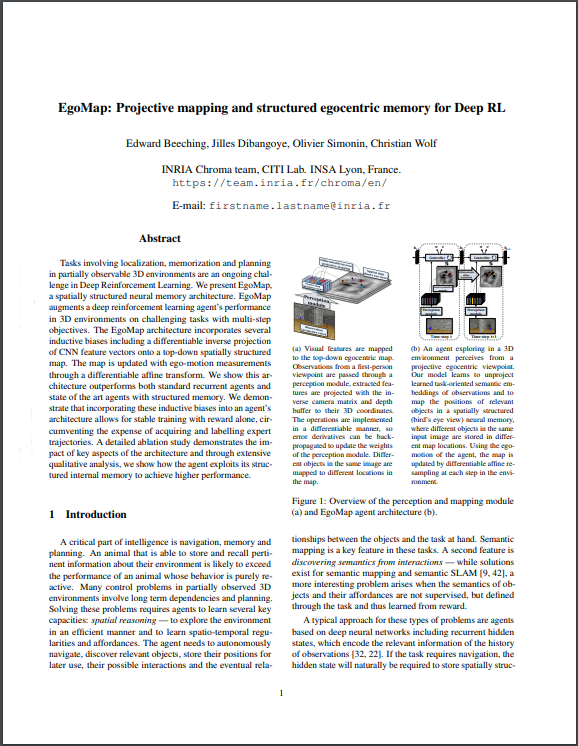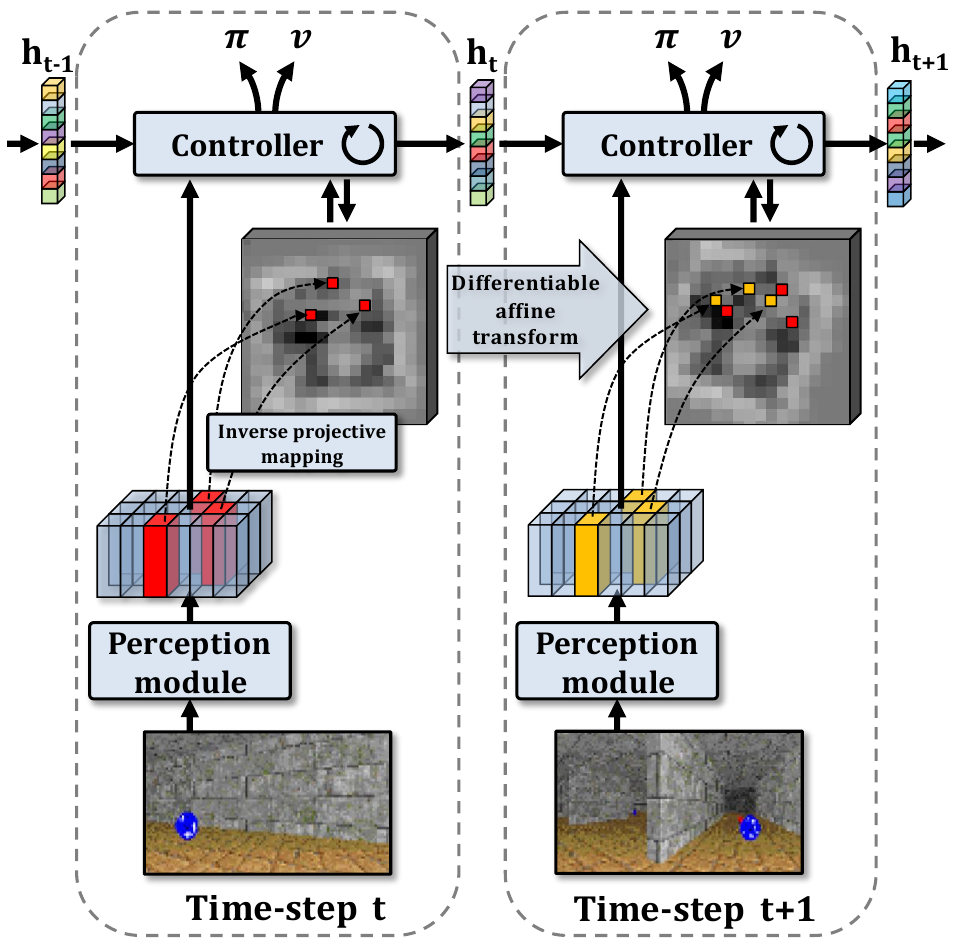 [Paper]
[Paper]
|
|
Citation
Beeching, E., Dibangoye, J.,
Simonin, O., and Wolf, C., 2020. EgoMap: Projective mapping and structured egocentric memory for
Deep RL. In proceedings of the European Conference on Machine Learning and Principles and Practice of
Knowledge Discovery
in Databases.
[Bibtex]
@inproceedings{beeching2020egomap,
title={EgoMap: Projective mapping and structured egocentric memory for
Deep RL},
author={Beeching, Edward and Dibangoye, Jilles and
Simonin, Olivier and Wolf, Christian}
booktitle={ECMLPKDD},
year={2020}}
|


